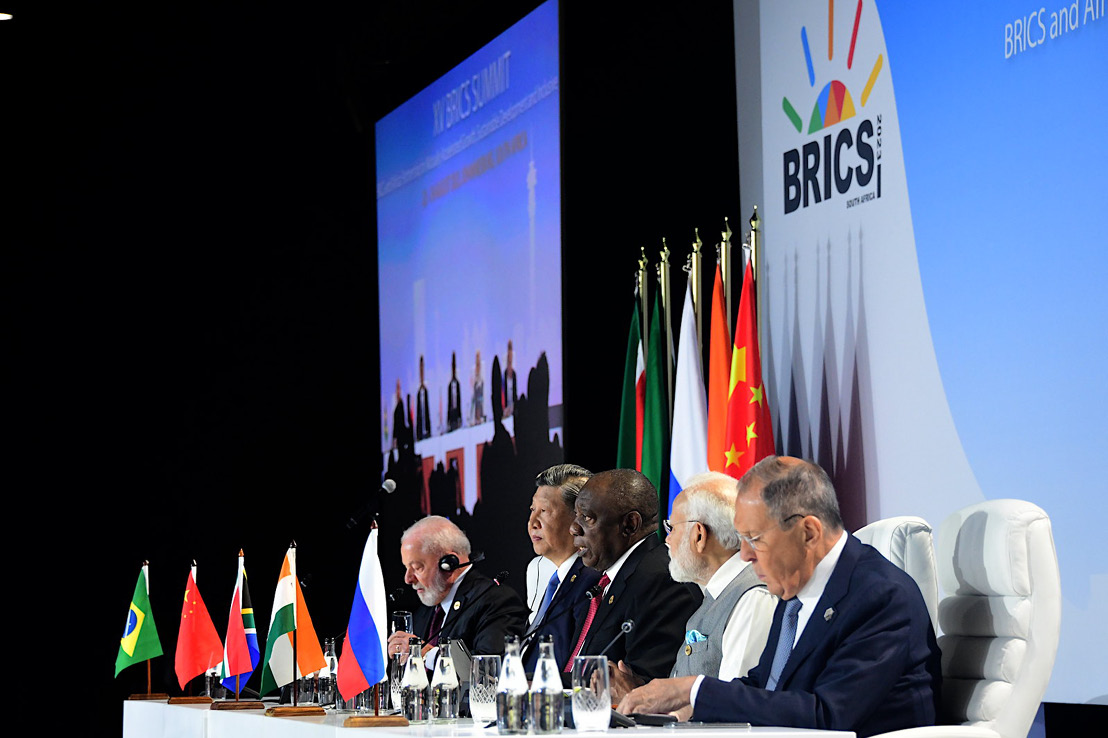2023 was a difficult year that ends with two bloody international conflicts that are still unresolved and whose developments will heavily influence the future of the international system.
The year that is opening is above all an election year: from Russia, where the result of the election of the future President seems to be taken for granted today, to the United States where the competition is wide open, not only between the two current “front runners”, but also for the possible emergence of one or more “dark horses”.
This year we will also see the election of a new European Parliament, in a period of relative weakness of the great political families that have so far guided European destinies and of the growth of nationalist and populist groups.
It is difficult for, in such a scenario, far-reaching or at least long-term visions to be favored and large plans of international order and governance to be drawn up. Yet it is what the world needs most.
In recent months we have seen the challenge of the so-called “Global South” emerge against what remains of the old Western leadership. But in reality this is more of a propaganda image than an operational reality. The Global South is a sort of rhetorical label that covers a very differentiated reality, full of profound contradictions and even fierce rivalries.
The so-called BRICS (Brazil, Russia, India, China and South Africa) are at the head of the Global South, which this year will include Egypt, the United Arab Emirates, Saudi Arabia, Iran, Ethiopia and Argentina. Other enlargements could occur in the future.
It is a very virtual South, which ranges from the Arctic Circle, with Russia, to the Antarctic with Argentina, but which is, for the most part, located well north of the equator (with the sole exceptions of Brazil, South Africa and Argentina). But above all it is a very confusing political reality. These countries, apart from claiming a greater role and a greater share of international power, have not yet outlined their plan for a new international system.
To date, their greatest result has been to empty the usefulness and role of the G20, thus giving back breath and purpose to the alliance of Western countries led by the USA and the G7 (which has now definitively lost Russia, which had briefly transformed into the G8, and failed to include China).
The United Nations system is paralyzed at the Security Council level by the conflicts between the 5 holders of the right of veto on the wars in Ukraine and the Middle East but, on the other hand, it seems to have no alternatives. China apparently has some ambition to redesign this system in its image, but its Sino-centric vision is not yet gaining much traction. On the contrary, it arouses fears and resistance, primarily in its neighbourhood, in Asia. Mainly, the Chinese design still has too many “imperial” characteristics.
There are those who would welcome the formation of two opposing global blocs, in the hope of re-editing the mechanisms and balances of the old Cold War, along lines and with differently aggregated protagonists. But the situation seems too uncertain. In the Global South, the ideological presence of “non-alignment” is still strong, which often also justifies the strength of opposing nationalist ambitions. These countries do not want to be part of an integrated bloc, led by Beijing. On the other hand, China’s ability and willingness to engage in the management of international crises is still very limited, as we saw during the latest pandemic, as well as in the prudent absenteeism in the face of the wars in Ukraine and the Middle East.
The initiative therefore still remains in the hands of the old and weakened West, which however is not only less powerful than yesterday, but also less inclined to actively exercise its leadership and bear the great costs. Of course, he reacted well to Russian aggression, but now he seems uncertain about the future developments of the war: aiming for Putin’s defeat or maintaining a stalemate? Uncertainty also reigns in the Middle East. Americans and Europeans would like to put an end to the Israeli-Palestinian conflict with the creation of two separate and sovereign states: but this solution does not gather sufficient consensus either in Israel or among the Palestinians. Can it be imposed from outside? And at what costs?
Unfortunately, today the management of crises and conflicts requires costly direct interventions, with uncertain outcomes and politically controversial, as well as the active cooperation of numerous ambitious and contentious regional powers.
We therefore face a very difficult year, during which the minimum objective is to keep alive what remains of the international balance.
A key role could be played, surprisingly, by the European Union, which is a bit of the “black swan” of this situation: an entity from which no one seems to expect anything decisive, but which, in reality, in recent years , has surprised everyone with its resilience and the determination with which it has managed to face many very serious crises, both domestic and foreign. We would like to be surprised again.
